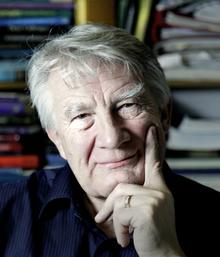Few expected a Conservative government to emerge from the 2015 election. Along with discussions as to why the polls got it so wrong, the aftermath of the election, as well as the campaign period, created a great debate around the blog. To mark the end of 2015 we’ve compiled our top articles revolving around this theme (for our full archive on the election click here, and all content from the LSE General Election site has also been archived here).
The ‘shy’ English nationalists who won it for the Tories and flummoxed the pollsters
 Most newspapers concluded that the Tories mainly won over Lib Dem and Labour waverers to score a surprising majority in the general election. However, as Eric Kaufmann shows here, it was really the English nationalist penumbra around UKIP, rather than Lib Dem or Labour switchers, that explains the great polling calamity.
Most newspapers concluded that the Tories mainly won over Lib Dem and Labour waverers to score a surprising majority in the general election. However, as Eric Kaufmann shows here, it was really the English nationalist penumbra around UKIP, rather than Lib Dem or Labour switchers, that explains the great polling calamity.
Populist personalities? The Big Five Personality Traits and party choice in the 2015 UK general election
 To what extent are decisions at the ballot box driven by a voter’s personality? In this article, James Dennison examines the association between personality traits and party choice in the UK’s 2015 general election. He finds, among other things, that UKIP and Green voters are the most closed and open-minded respectively.
To what extent are decisions at the ballot box driven by a voter’s personality? In this article, James Dennison examines the association between personality traits and party choice in the UK’s 2015 general election. He finds, among other things, that UKIP and Green voters are the most closed and open-minded respectively.
Explaining the Exit Poll
 At 10pm on election day, the ballots will close, and the counting will begin. It may be many hours before it becomes clear which party has the most seats in the new parliament, and many days until we know which parties will form the next government. However, shortly after the 10 o’clock deadline, broadcasters will release a forecast based on the exit poll, which will give the first insight into how voters have actually voted in the general election. In this post, Jouni Kuha explains the detail behind the exit poll forecast, and indicates some of the difficulties in putting together a forecast under considerable time pressures.
At 10pm on election day, the ballots will close, and the counting will begin. It may be many hours before it becomes clear which party has the most seats in the new parliament, and many days until we know which parties will form the next government. However, shortly after the 10 o’clock deadline, broadcasters will release a forecast based on the exit poll, which will give the first insight into how voters have actually voted in the general election. In this post, Jouni Kuha explains the detail behind the exit poll forecast, and indicates some of the difficulties in putting together a forecast under considerable time pressures.
Did Britain’s right-wing newspapers win the election for the Tories?
 In the 2015 election campaign, almost all newspapers were extremely pro-Conservative and rabidly anti-Labour. Bart Cammaerts writes that if almost all media are so enthusiastically choosing the same ideological side, this will inevitably have a profound impact on public opinion which is dangerous for democracy.
In the 2015 election campaign, almost all newspapers were extremely pro-Conservative and rabidly anti-Labour. Bart Cammaerts writes that if almost all media are so enthusiastically choosing the same ideological side, this will inevitably have a profound impact on public opinion which is dangerous for democracy.
Electoral bias in the UK after the 2015 General Election

 Most discussion of the UK’s 2015 election so far has focused on the unexpected Conservative majority. But Charles Pattie and Ron Johnston reveal another remarkable story hidden just below the surface. The electoral system not only deals unfairly with the smaller parties, it is also biased in how it treats the Conservatives relative to Labour. But the nature of that bias changed radically in 2015 and for the first time in over 20 years substantially favours the Conservatives: David Cameron has even more reason to be happy than we realised.
Most discussion of the UK’s 2015 election so far has focused on the unexpected Conservative majority. But Charles Pattie and Ron Johnston reveal another remarkable story hidden just below the surface. The electoral system not only deals unfairly with the smaller parties, it is also biased in how it treats the Conservatives relative to Labour. But the nature of that bias changed radically in 2015 and for the first time in over 20 years substantially favours the Conservatives: David Cameron has even more reason to be happy than we realised.
The case of the missing marginals: Labour’s task in 2020 is harder than they currently realise


 Few analyses of the election result have got beyond the headline outcome and started to unpick the detail. Ron Johnston, Charles Pattie and David Manley do this for the pattern of marginal seats before and after the contest and cone up with some highly significant findings.
Few analyses of the election result have got beyond the headline outcome and started to unpick the detail. Ron Johnston, Charles Pattie and David Manley do this for the pattern of marginal seats before and after the contest and cone up with some highly significant findings.
____
Featured image credit: DAVID HOLD CC BY-SA 2.0





